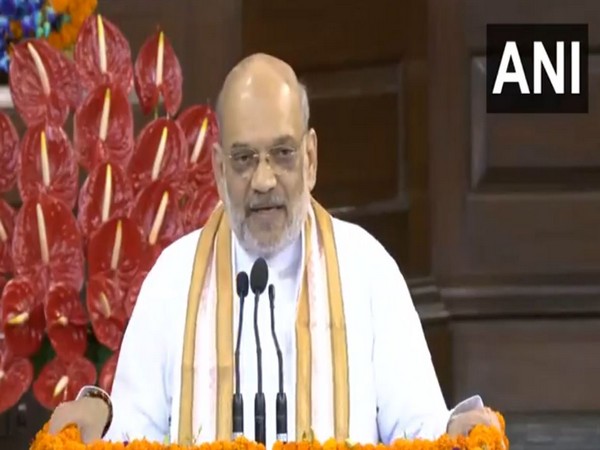The Rise and Influence of Amit Shah: A Modern-Day Chanakya in Indian Politics
Amit Shah, a senior BJP leader, has significantly influenced Indian politics, playing a key role in the party's growth and success. Starting his journey at 16 with the RSS, Shah's strategic acumen saw him rise through the ranks to become the youngest BJP president and Union Home Minister, shaping critical policies and modernising the legal framework.

- Country:
- India
Renowned for his political acumen and strategic prowess, Amit Shah has become a cornerstone in the phenomenal growth of the Bharatiya Janata Party (BJP), contributing to its monumental win in the 2019 Lok Sabha elections.
Second only to Prime Minister Narendra Modi, Shah, 59, has cemented his status as a master organiser, remarkably steering the BJP's alliance to secure 73 seats from Uttar Pradesh in the 2014 elections as the party's general secretary.
Often compared to the legendary Chanakya, Shah made history by becoming the youngest president of the BJP at 49 in 2014. In 2019, he further ascended to one of the youngest Union Home Ministers at 54, marking a significant milestone in his political journey.
Born in Mumbai in 1964 into a prominent Gujarati family, Shah began his political career at 16 with the Rashtriya Swayamsevak Sangh (RSS) and soon engaged with the Akhil Bharatiya Vidyarthi Parishad (ABVP), exhibiting remarkable organisational skills and dedication to the party's principles.
Transitioning into mainstream politics, Shah joined the Bharatiya Janata Yuva Morcha (BJYM) in 1987 and became the BJP's Ahmedabad city secretary in 1989, solidifying his political foundation.
Shah's influence grew as he took on significant roles, including serving as chief campaigner for BJP stalwarts like Atal Bihari Vajpayee and Lal Krishna Advani. His successive electoral victories in the Gandhinagar Lok Sabha constituency in 2019 and 2024 further established his leadership.
Throughout his career, Shah has navigated legal challenges and controversies, emerging unscathed from a high-profile fake encounter case in 2010.
From spearheading the BJP's 2014–2019 electoral successes to assuming critical responsibilities as Union Home Minister, Shah has played a pivotal role in shaping key policies, including the abrogation of Article 370 and the Citizenship Amendment Act (CAA).
His tenure has been characterized by proactive decision-making and enhancement of national security, exemplifying his enduring influence in Indian politics. Notably, Shah initiated the introduction of three revolutionary laws to modernize the Indian legal system, marked to take effect on July 1, 2024.
Shah's strategic peace initiatives have been instrumental in curbing Maoist violence and restoring peace in the Northeastern states. Beyond politics, he has significantly contributed to sports administration in Gujarat, especially in chess and cricket, underscored by his involvement in the reconstruction of the Motera Cricket Stadium, now the Narendra Modi Stadium.
Additionally, Shah serves as a trustee of the revered Somnath temple, affirming his multifaceted influence across various domains.
(This story has not been edited by Devdiscourse staff and is auto-generated from a syndicated feed.)
ALSO READ
"Welcome to Wayanad, Priyanka Gandhi!": Congress in Kerala set tone for Lok Sabha bypoll
Rahul Gandhi informs Lok Sabha Speaker's office about retaining Raebareli seat
BJP Leaders Convene to Finalize Lok Sabha Speaker Nominee
No CBI Intervention Needed in Renukaswamy Murder Case, Says Karnataka Home Minister
Maa Ganga has taken me in her lap, I have become part of Varanasi: PM Modi in his first visit to his Lok Sabha constituency after polls.










